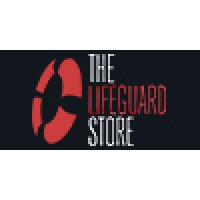
The Lifeguard Store
The Lifeguard Store is the #1 place for all your lifeguard and swim equipment needs. We can do custom printing on any type of clothing from t-shirts and hoodies to swimsuits. Whether it's equipping your lifeguard staff with essential safety gear, upgrading your pool facility with the best equipment, or outfitting your swim team in the latest swimsuits and apparel, The Lifeguard Store is the place to shop! Start shopping now - http://www.thelifeguardstore.com The Lifeguard Store offers FREE custom team sites too! This is a website that allows coaches to set up an online store where their team members and their fans can log in and order team uniform items, apparel, and equipment. Each team is able to shop from a website that sells exclusively their team items. Teams with custom team sites receive bulk pricing and discounted shipping on all of their individual orders. To demo a custom team site, go to: http://www.thelifeguardstore.com/teams Username: Team Division Password: example






